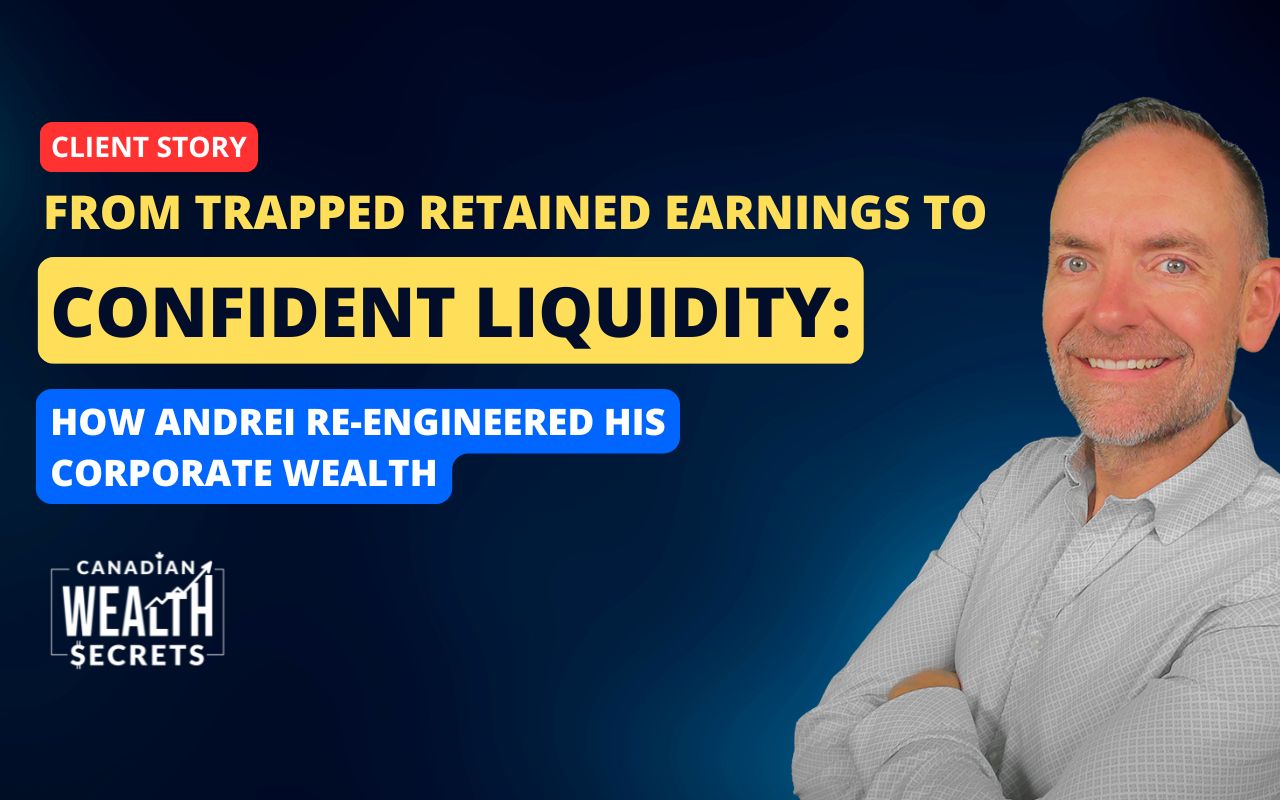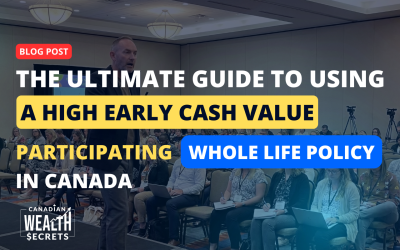With $950K locked in GICs, a Toronto entrepreneur faced a tax wall. A corporate whole life strategy opened the door to flexible, tax-efficient wealth.
When Andrei moved to Canada in 2015, he carried with him not only a young family but also the determination to rebuild his career in a new country. A niche tech consultant for startups across Europe, he steadily grew his incorporated business. By 2025, a decade after arriving, his company had accumulated nearly $950,000 in retained earnings.
But success carried its own challenge. Most of that money sat in GICs — safe, but inflexible. “It is almost impossible now to repatriate money from my former country,” he explained, noting that geopolitical shifts had disrupted his international client base. At the same time, he knew that pulling money from his corporation into his personal pocket would mean losing 30–39% immediately to dividend taxes.
For a man who needed around $150,000 annually to sustain his family’s lifestyle, that was a wall.
Searching for a Better Way
Andrei’s instinct was disciplined. He wasn’t a spender. He had only taken dividends once, to put a down payment on a home. But he knew the math didn’t work going forward.
Rental properties were bleeding cash. The global uncertainty made international earnings unreliable. And in his words: “I need to extract money from my corporation efficiently, because I will rely on this money in the next few years.”
He began looking for alternatives. That search led him to Canadian Wealth Secrets’ framework — a strategy built around corporate-owned participating whole life insurance.
The Turning Point
On a call with our President of Corporate Wealth Management Kyle Pearce, the concept clicked. Instead of treating retained earnings as trapped capital, Andrei could redirect them into a corporate-owned whole life policy.
- The premiums would build a tax-deferred, compounding cash value inside the corporation.
- That cash value could then be accessed through loans — either directly from the insurer or via a third-party lender — without the need to declare taxable dividends.
- Over time, the policy’s growing death benefit would eventually flow through the company’s capital dividend account (CDA) to his heirs tax-free.
Kyle put it simply: “This is the only asset that exists in the known universe that’s worth one thing today, 100% leverageable today — and when you die, it’s actually worth more.”
For Andrei, the idea was liberating. He didn’t have to choose between watching his retained earnings stagnate in GICs or triggering a heavy tax bill.
Building the Structure
In March 2025, Andrei applied for a corporate-owned whole life policy with a trusted insurance company. The policy was approved a few weeks later with a face value of roughly $3 million.
The structure allowed for a flexible premium design:
- A minimum annual contribution of about $55,000.
- A maximum contribution of about $150,000 — the level Andrei committed to funding.
The corporation is both owner and beneficiary of the policy. Digital access gives Andrei a clear view of cash value growth and borrowing capacity as it accumulates year over year.
A New Kind of Confidence
Though only in its first year, the policy has already shifted Andrei’s mindset. Instead of worrying about when and how to pull cash from the company, he now sees a clear framework:
- He can cover his family’s $150,000 annual lifestyle needs without triggering dividend tax.
- He can access up to 90% of his policy’s cash value through loans, should new opportunities arise.
- His estate is positioned to receive millions in future benefits through the CDA, preserving wealth for his wife and daughter.
Or, as he put it: “For me, it’s going to be much easier to sleep at night if I know I have the funds to fund the policy. This structure gives me confidence.”
Lessons for Other Business Owners
Andrei’s journey is not unique. Many incorporated Canadians find themselves with growing retained earnings but few tax-efficient ways to use them personally. His story underscores three lessons:
- Retained earnings don’t have to sit idle in GICs.
- With the right structure, corporate whole life can offer liquidity today and security tomorrow.
- Tax planning isn’t only about reducing today’s bill — it’s about building long-term flexibility.
What This Could Mean for You
If you’re a Canadian entrepreneur with retained earnings, you may face the same dilemma Andrei did: trapped cash, inefficient options, and the fear of losing control. Exploring a corporate whole life strategy could help you unlock liquidity, protect your family, and keep your corporate dollars working harder.
👉 Learn more by exploring the Canadian Wealth Secrets Masterclass or booking a discovery call with our team.
Disclaimer: This content is for educational purposes only and does not constitute financial, legal, accounting or investment advice. Always consult with a qualified advisor before making investment, tax, accounting or legal decisions.






